
Depleted Steelers aim to bounce back in derby face off
The Sheffield Steelers return to the Utilita Arena this Saturday to face off with the Nottingham Panthers, a big derby in English hockey’s Elite Ice Hockey League.
The Panthers last game on home ice was a 2-4 defeat to the Dundee Stars last Sunday, a game which frustrated head coach Aaron Fox.
He said: “We didn’t have a lot of get up and go in our game tonight.
“We’re banged up with guys not in our lineup and banged up with guys in our lineup that are playing through some stuff.”
The Steelers suffered back to back defeats after a trip to Wales on Wednesday night ended in a 6-3 defeat to the Cardiff Devils.
The squad has been hit with several absences and injuries in recent weeks, leaving Fox to pick from a depleted group of players.
He said: “We’ve built this team on pace and depth.
“When you’re thin and banged up and tired it’s hard to play that way.”
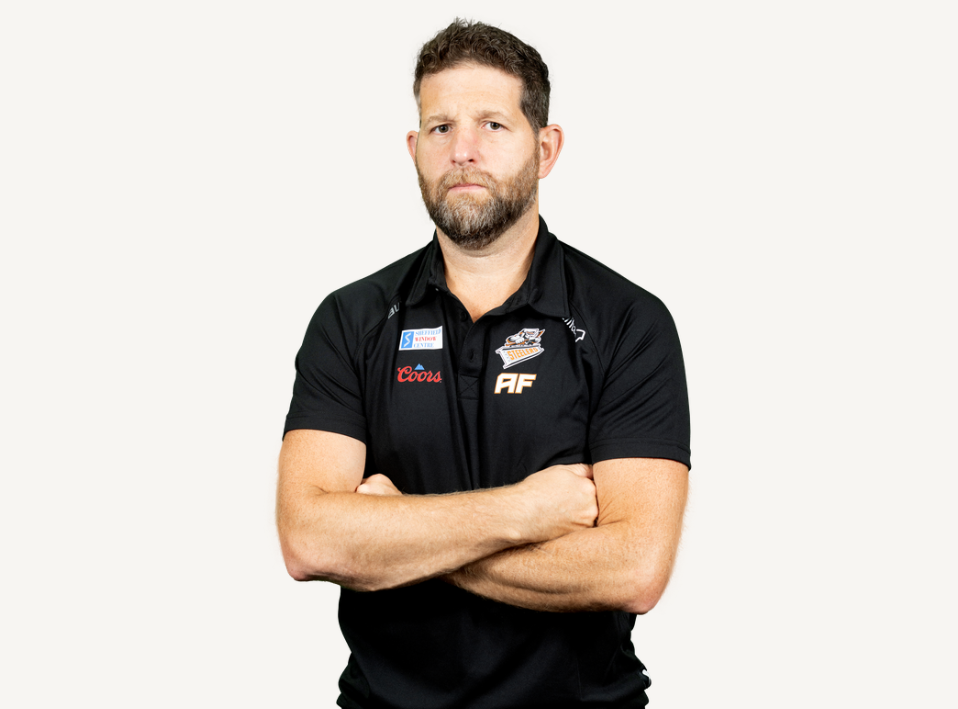
Despite this, Steelers player Maxime Golod has hit good form recently, picking up man of the match and a goal against Dundee.
Fox described him as a “good skill guy” who has injected some energy and life into the Steelers.
The side have also been reinforced by goaltender Jere Huhtamaa who arrived from Finland this week. He is set to start against Nottingham tomorrow.
Fox claimed his 223rd win as coach last Saturday against Manchester, meaning he now has more wins than any other Steelers coach.
A 224th win for the Steelers under Fox this Sunday could lift them as high as second in the Elite League table.
Despite the recent dip in form, The Steelers go into the match in fourth place, three places above their opponents.
Nottingham come into this game on the back of two wins, setting up what should be a highly contested match this Sunday.
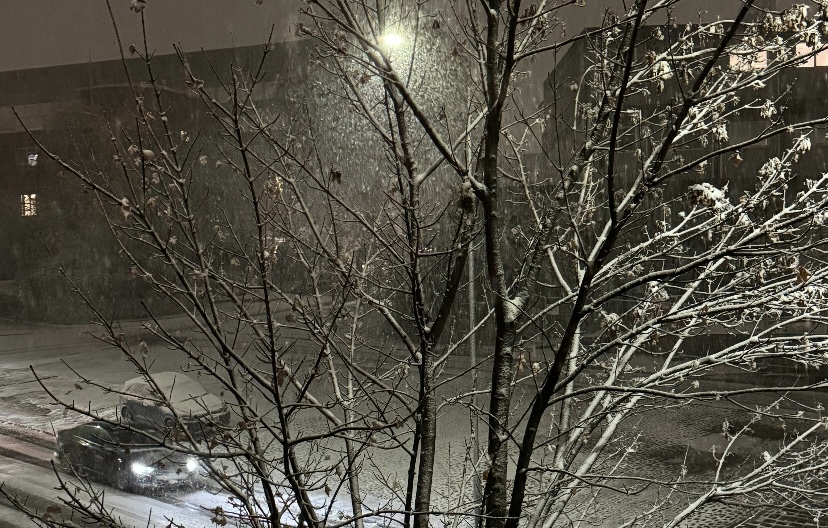
Sheffield’s homeless charities in year-round crisis
Sheffield's homeless charities are at breaking point as they constantly battle to help the increasing number of people who are sleeping on the streets.
Temperatures across the city plummeted last week marking the first snowfall of the season, triggering Sheffield’s Severe Weather Protocol (SWEP). But the Lord Mayor of Sheffield Jayne Dunn believes the “rain is just as important as the cold” and more needs to be done to help homeless people battling against other extreme weather conditions.
"What we do need is wrap around support for personalised aid for homeless people. It works but it's very very expensive, what we need is long term funding,"
- CLLR DUNN
SWEP is launched when temperatures reach -2°C for three consecutive hours. Under this protocol, emergency accommodation is provided as a temporary solution for people tackling homelessness this winter.
The Mayor has emphasised that homelessness isn't just about surviving extreme temperatures until SWEP is activated. Rain and wind chill, which aren't factored into weather protocols, are the real dangers to people sleeping rough.
She says: “Rain is just as important as the cold, it’s not something we should only be thinking about when it snows, we should be thinking about it all the time.”
Cllr Dunn advocates for personalised support for people experiencing homelessness to bring Sheffield’s rising homelessness figures down for good.
She supports The Archer Project, a Sheffield homeless charity, and their year-round approach to tackling the homelessness crisis. The organisation works on the frontline to provide emergency, trauma-informed services to help those people who are sleeping rough all year round.
Joe Logan, Fundraising Officer for the charity, says the dangers of all extreme weather conditions, not just cold, are amplified for the homeless.”
“Dehydration, sunstroke, severe sunburn, everything that people are told to think about when the sun comes out is double, triple for people experiencing homelessness.”
- Joe Logan
Unfortunately, the charity is at its breaking point and cannot cope with the rise in demand. CEO, Tim Renshaw, told the BBC: "We used to just about cope cooking 15,000 meals a year. We're expecting to cook 28,000 this year."
On November 6, Deputy Prime Minister Angela Rayner announced a £10m emergency fund aimed at preventing deaths of those sleeping rough this winter.
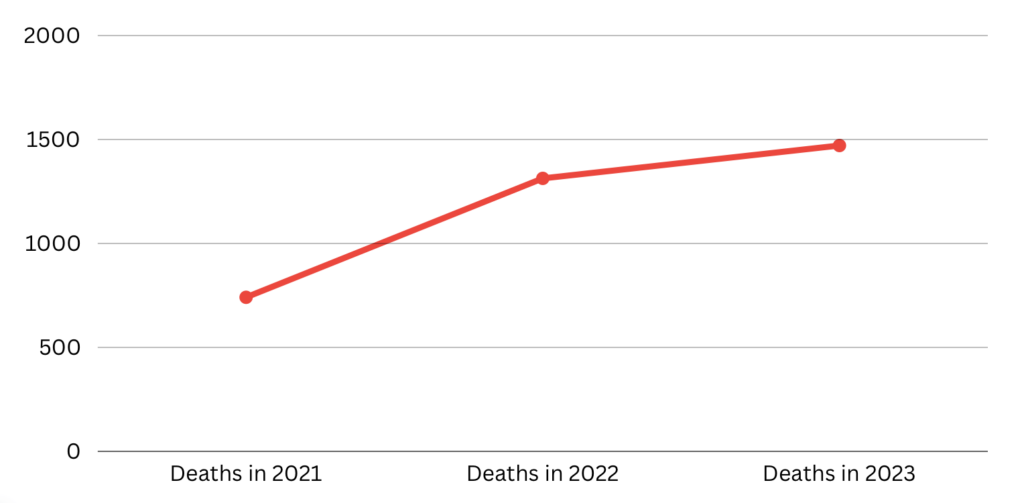
A shocking 1474 people died due to homelessness in 2023 alone, a 42% increase from the previous year and double the recorded deaths in 2022.
Yorkshire and The Humber are set to receive more than £1m of the finances to help 16 of its most vulnerable areas, with £240,000 allocated to Sheffield.
Homelessness is an escalating problem in the city, where more than 4000 families and people reported they were homeless in 2023.
During the emergency announcement, Deputy Prime Minister Angela Rayner described the crisis as “a national disgrace, and we can’t keep sticking plasters on it”.
Chancellor Rachel Reeves’ Budget also announced a further £233m dedicated to homeless services from April 2025.
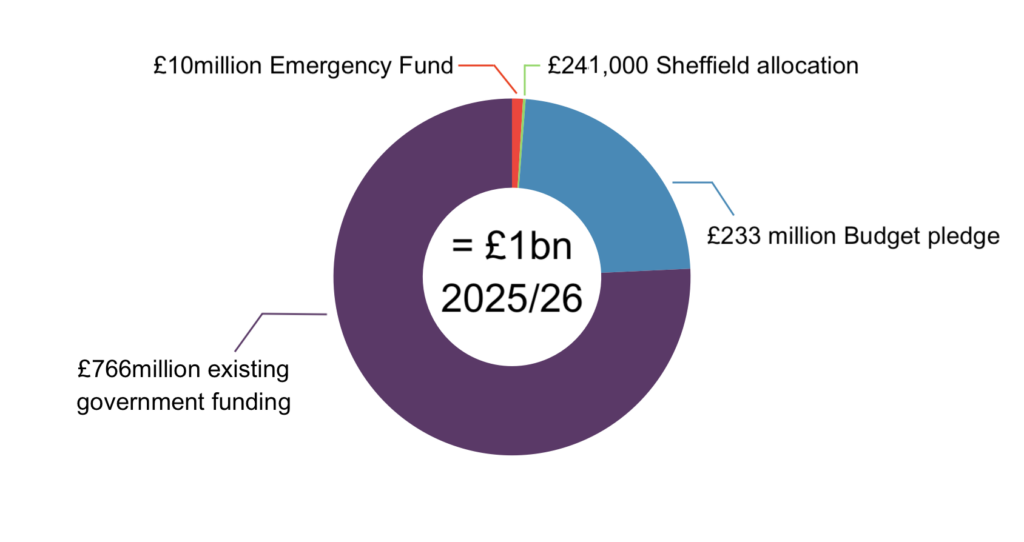
This pledge, the emergency fund, and existing government financial plans brings the budget for tackling homelessness and investing in services with a budget of £1bn for 2025/26.
Emmaus Sheffield provides supported accommodation, personalised support and training schemes to help homeless people regain their identity and independence.
The charity, which aims to provide a home for however long a person needs it, runs 33 projects in the UK and has 425 sites worldwide.
When Emmaus Sheffield first opened in 2007, it had five bedrooms, today it accommodates 18 people. To cope with the rising demand, they hope to build four additional bedrooms and a bigger kitchen.
Unfortunately, people who have been referred to the charity’s site are often kept on a waiting list for nearly six months.
“We very rarely have vacancies. It’s not really a winter crisis,” says Lesley Morgan, community leader of the Sheffield branch. “It’s just constant, it’s not just a winter thing for us, it's every month of the year. We are full from January through to December.”
Emmaus’ year-round, wrap-around support increases the likelihood of its residents finding a job and moving on from the project.
The charity has a dedicated workshop on-site that provides carpentry training to its residents. Their work is then put up for sale on-site and at local markets.
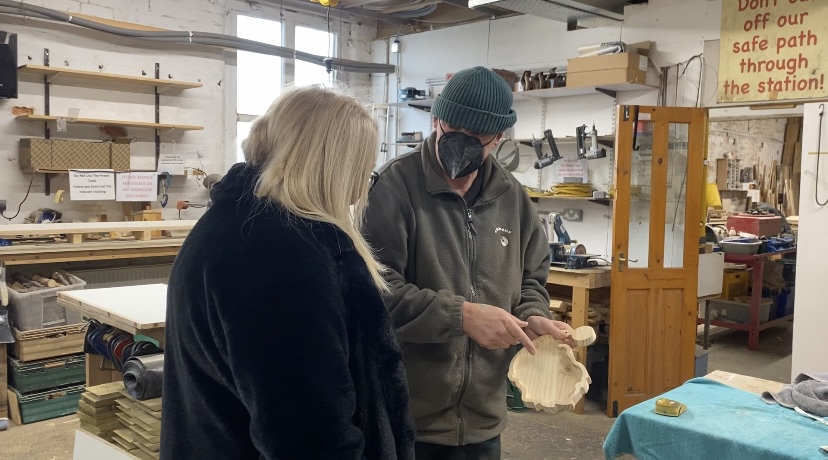
The residents are also offered gym memberships and driving lessons to help with their rehabilitation and increase their employability.
But when the residents of the charity are ready to live independently, they often struggle to find social housing.
“There is a massive problem, when someone is ready to move out, we can’t actually find them affordable housing, so they’re turning jobs away because they’ve got nowhere they can afford to live,” says Lesley.
Emmaus and The Archer Project's year-round commitments to rehabilitation and support are being undermined by the lack of social housing for people emerging from homelessness.
Joe Logan, of the Archer Project, blames failings in social policy. He says: “There needs to be a recognising of the surrounding contributing factors to people experiencing homelessness.”
To fight this crisis, the city’s leading charities are working tirelessly on ensuring that the fight against homelessness is not a seasonal effort.

Historic Sheffield derby cup clash set for early next year
The oldest derby in world football is set to be reignited with a fiery cup clash between Hallam FC and Sheffield FC.
The two teams last played each other competitively in 2012.
The match will take place at Hallam FC’s home ground, Sandygate on 31st January 2025.
The inaugural derby match was played on Boxing Day of 1860 under ‘Sheffield Rules’, which differ slightly from the FA rules that football fans have come to know and love.
Sheffield Rules resembled the beginnings of modern footballing rules, including offsides, but did not contain key rules such as penalty kicks or having one designated goalkeeper.
Sheffield FC, formed in 1857, currently compete in the Northern Premier League Division One East, the seventh tier of English football, and currently sit bottom of the league table.
Hallam FC play in the Northern Counties East League Premier Division, a tier below Sheffield FC, and are currently pushing towards the top of the league.
Dylan Ralph, employee of Sheffield FC, expects a busy crowd to attend the match.
He said: “ I reckon we could probably get 1300 people maybe. So it will be amazing, it’ll be very busy.
"It will be a very good atmosphere, despite there being a lot more neutral fans.”
The match is a great opportunity for neutral fans to attend a historic fixture that will no doubt be competitive and lively.
As the ‘rules derby’ will take place as part of the Sheffield Senior Cup, the profits made from the game will be shared between the two clubs, injecting a significant amount of money into the infrastructures of both sides.
The groundsman of Hallam FC, Andy Taylor, commented on the scale of the match.
He said: “It’s much anticipated amongst football fans around the country and even globally. This week alone we’ve had visitors coming from Norway and Suffolk, and every week there’ll be visitors from all over the world to visit Sandygate.”
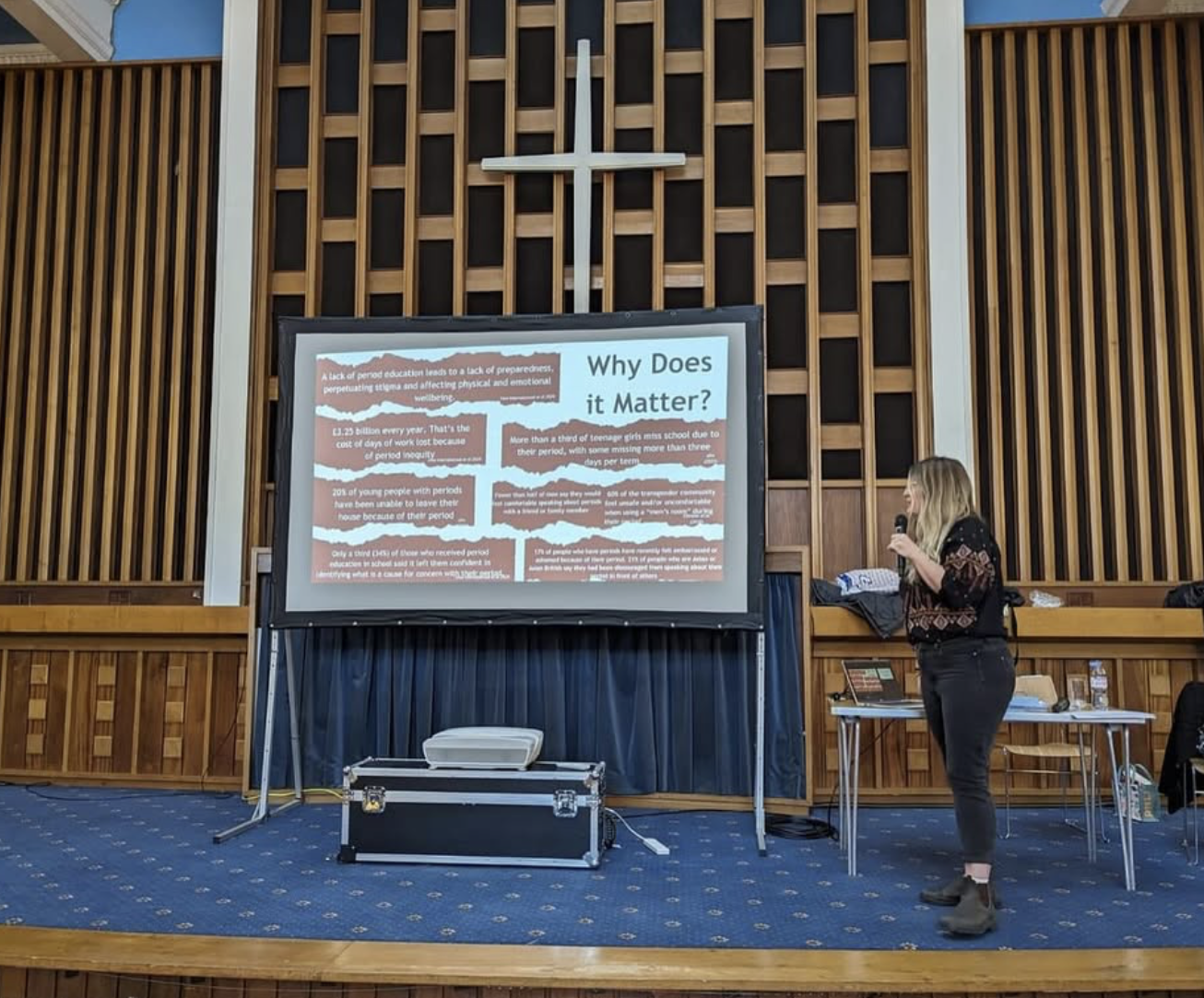
Sheffield launches Period and Menopause Charter but more still needs to be done
The first ever period and menopause charter was launched by Sheffield City Council last week, but one campaigner fears it could be a “missed opportunity”.
The Period Equity and Menopause Awareness Charter aims to reduce the inequalities and stigmas around menstruation and menopause.
The Charter officially launched in an event on 21 November 2024, but some of the partners who helped with its development have expressed concerns about the extent of its impact.
Chrissy Cattle, the CEO of Irise, a Sheffield-based period equality and advocacy charity, explained that while the Charter is a step in the right direction, it does not include a plan to operationalise its commitments.
She said: “A lot of people were quite upset about where the Charter has landed because they don’t feel it honours the collective investment in it, and I know that from the council’s point of view it's been challenging to keep everybody happy, and what’s resulted we would say is an alright charter but we see no plans for implementation.”
Irise hoped to see a pilot scheme with local businesses so the Charter’s impact could be assessed, refined, and shared with other councils looking to replicate Sheffield’s approach, but it is unclear whether that will be adopted.
Chella Quint, the founder of Period Positive praised how the charter builds on work that has already started, saying: “This is exactly where we should be as a city seven years after starting our pilot with the council, and five years after Sheffield was declared a Period Positive City in an Early Day Motion in Parliament in 2019.”
She emphasised that successful implementation would involve “transparency and evaluation”, and would like to see wider support for schools to provide comprehensive menstruation education, and further integration of the conversations and advocacy around periods and menopause.
“We are hopeful that the Charter will be evaluated and used as a starting point rather than a tick box exercise,” said Ms Quint.
The council passed a motion in November 2022 where they resolved to take action on menopause awareness and period equity after the issue was raised by the Lord Mayor of Sheffield, Councillor Jayne Dunn.
This led to a series of city and community events including representatives from local businesses, the community and faith sector, campaign groups and individuals to agree on the charter’s contents.
Cll Dunn said: "For some women the menopause is extremely debilitating. Often women don't know where to get help from.
"The impact of the Charter means women will have access to clear, accurate, information. It is a trail blazing initiative. It will enable women to make informed choices and mean greater opportunities for equality, ensuring periods and the menopause will not hold people back."

Councillor Fran Belbin, the Deputy Chair of the Strategy and Resources Committee, confirms these sentiments.
She said: “Both period poverty and the impacts of the menopause can be really significant to those affected. Not only can they hinder mental and physical health, but not having period products can prevent some girls from being able to attend school; the symptoms of the menopause can have really significant impacts on somebody’s day to day life, including at work”.
The charter commits the council to encouraging discussion and literacy about period equity and menopause among all employees, working towards the provision of free period products across the city, and supporting organisations in making similar commitments.
According to a study by Plan International UK that took place during the pandemic, 11% of girls aged 14 - 21 could not afford period products and were improvising with makeshift products, and 22% who could afford products were also struggling to access them.
Irise and Period Positive both work towards reducing the stigma associated with periods and educating all people on menstruation.
Ms Cattle said the work Irise does is “really demonstrating that its normal, everybody should have access to products and information. There it is just next to your toothpaste and toilet roll”. She added: “For the first time ever in this country it [the Charter} guides at a city level a series of actions that everybody can undertake to further the agenda."
The charter has come after several actions by the national government in recent years to increase period equity.
In 2020 a scheme was introduced to make period products available for free in all state funded schools, and in 2021 the luxury tax was removed from menstrual products.
Despite these efforts, periods remain the main reason that girls miss school in the UK with 49% of girls saying that they have missed a full day of school because of their period, according to Plan International.
Ms Cattle said that while the charter will create greater visibility for the movement, its success will be determined by material impact.
She said: “I think it's really powerful that a city council is willing to go out in front on an issue like this, and it would be a waste if it failed because it's another failure for the space and for people."

National Video Game Museum to host late-night Christmas bonanza
The National Video Game Museum (NVM) is set to organize the Christmas Lates event for video game enthusiasts in Sheffield, as part of a range of "brilliant" outreach projects.
Visitors will be able stay in late to play video games, and explore the rich history of gaming over the last 50 years.
Events such as Christmas Lates are key to the museum’s efforts to sustain itself, and to raise funds for a variety of projects to support social communities around Sheffield.
Christian Beckett, Marketing and Communications Officer at NVM, said: “It highlights the people-centred approach to working that connects with our wider community engaging audiences both during and after its creation.
‘Playing with Power’ is one of these "people-centred" initiatives, which allows Sheffield’s sanctuary-seeking community a unique way of telling their stories as videogames.
The project comes from a collaboration between The National Videogame Museum and the Stand and Be Counted Theatre.
Young kids from Sheffield’s sanctuary-seeking community are learning to create video games with help from Biome Collective, an independent video game studio.
Attendees can see the exhibition at the NVM which displays the learning process and impact of the ‘Playing with Power’ project.
Mr Beckett said: “The overall objective of the project was to challenge conventional videogame narratives, promote inclusivity, engage underrepresented audiences through digital innovation and make the NVM a more relevant space for all of our communities.
"It was a brilliant and extremely rewarding project and all organisations involved are looking forward to collaborating again in the future.”

The late opening hours will be a first for the museum which typically closes by 4-5 pm on weekdays.
While video games attract both children and adults, these sessions will solely be for attendees over the age of 18. This will allow the museum to host a Mortal Kombat tournament, given the game’s R rating.
Christmas Lates sessions will run 5:30-8:30pm on Wednesdays-Fridays, starting from December 4 up until December 20.
Looking ahead, the museum is also preparing to introduce ‘Illuminate The Play’ later in December where gamers can partake in LED gaming experiences. NVM will also be introducing Virtual Reality setups for Tetris Effect on PlayStation VR.
NVM is currently in the process of becoming an Accredited Museum in the UK under Arts Council England’s Industry Standard for UK museums and galleries.
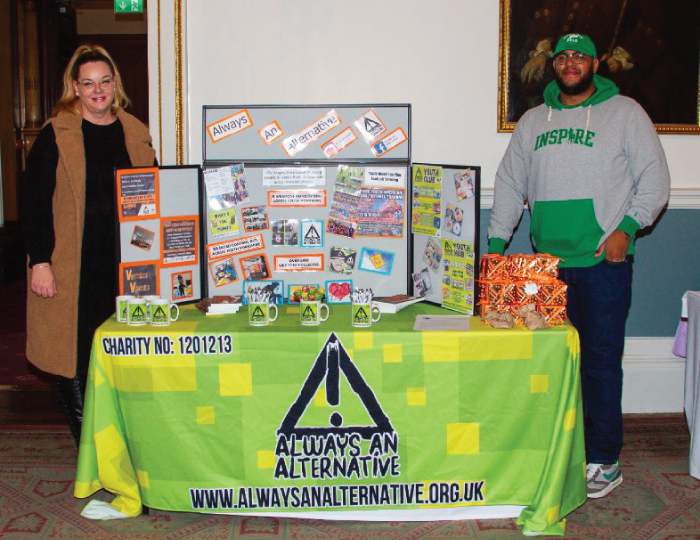
Youth violence, masculinity and dismissing therapy: “The reality that university can’t give you”
When Anthony Olaseinde was just 15-years-old, he watched a teenager being stabbed in a Sheffield park. Days later the youngster was dead. At the time Anthony was a member of a gang where fights were commonplace. Violent postcode rivalry was a way of life and knife crime was rife.
It took Anthony, now 37, another nine years to leave that part of his life behind. "I didn't want to do it no more," he says. "There was nothing in it for me."
His story isn't unusual. Figures from the Office For National Statistics (ONS) reveal how knife crime has seen an 80% increase in the last decade. Today, South Yorkshire is ranked fourth in the country for knife crime hotspots. At a rate of 11.7 offences per 10,000 people, London is only slightly higher with a rate of 15.6.
Anthony, who founded and now runs the charity Always An Alternative, believes early intervention and prevention is easier and more successful than rehabilitation. The organisation challenges the mindsets of youths-at-risk to deter them from a life of violence and crime, through education programmes, mobile youth clubs, and elevating the voices of victims, victims' families, and professionals.
Although the services the charity provides are available to young adults, Anthony notes they hardly engage with it. He believes the lack of positive influences in their lives and the normalcy of such violence in their environments renders them desensitised and incapable of seeing a better, safer life.
Anthony, who still lives in Sheffield, was brought up around substance abuse and domestic abuse. 'I didn't have a stable home and was moving around every couple of years," he says. "I had no positive influences in my life."
It was only when Anthony was 13 and moved to live with his grandmother in a more affluent area, escaping the "dog eat dog" environment, that he realised people had more peaceful lives. But this came with its own set of difficulties as he felt like an outsider. People in the community ostracised him by complaining about his behaviour and ringing the police on him.
"Even though it showed me that it [a normal life] could be done, it made me feel that somebody like me couldn’t do it," says Anthony. "I had been brought up around violence."
Only when he abandoned his former life did Anthony register the trauma he went through. He says: "It all creeps back and bites you on your ass. Even now I'm delving into depths of it."
Therapy is believed to be one of the most effective methods of recovery, however men are unlikely to seek such help. It would be against their nature: all they have ever known about what it means to be a man.
The prefrontal cortex which deals with rational thinking, reasoning and self-control is one of the last parts of the brain to mature - usually around 25-years-old. Before this development, children and young adults' decisions are shaped by the amygdala, a primitive and reactionary part of the brain, hence the notion that young people are impulsive and immature.
This makes them extremely vulnerable to exploitation and grooming by gang members who have weaponised this to recruit children into the County Lines network. In an investigation by BBC North West, it was found that more than 40 children daily in England are referred to social services for fear that they have been exploited by gangs.
The National Crime Agency defines County Lines as: "Where illegal drugs are transported from one area to another, often across police and local authority boundaries (although not exclusively), usually by children or vulnerable people who are coerced into it by gangs."
There are many factors which increase the risk of potential gang involvement in children. Many of them share similar backgrounds of abuse, neglect and trauma. They are likely to be truant, have been excluded from school, been in care, or their families are being supported by social workers due to dysfunctionality. The common denominator of these factors are superficially solved by gang participation which provide friendship and sometimes even family. Lastly, the appeal is embellished by the security of close ranks, money, and notoriety. Few understand the difference between popularity and infamy at that age.
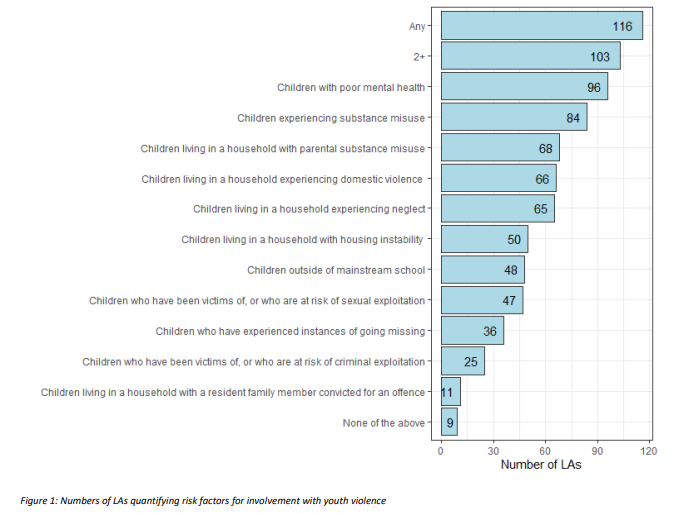
After Anthony made the decision to leave his previous way of life, he studied for a Bachelor's and Master's degree in Network Engineering and started a security company called Stay Safe Security. He implemented a programme called "Keep Sheffield Stainless" and from this came the idea to start his charity.
Combatting knife crime and youth violence continues to be a battle. Churchill Support Services underlined the severity of the issue, noting the rate of knife crime isn't declining.
Although early prevention has proven to be effective, adults should not be left behind, especially knowing that most of them began as victims too. Anthony admits he does not have the answers to solving the issue, but highlights the passivity of support services, who rely on people to come to them for help, are not helping. He scoffs at the absurdity that men trapped in violent lifestyles would seek help on their own volition. He believes the government could do more to help.
"It takes so much to seek help and they're not going to," Anthony says. "Services need to be going out to them. They need to be getting people in."
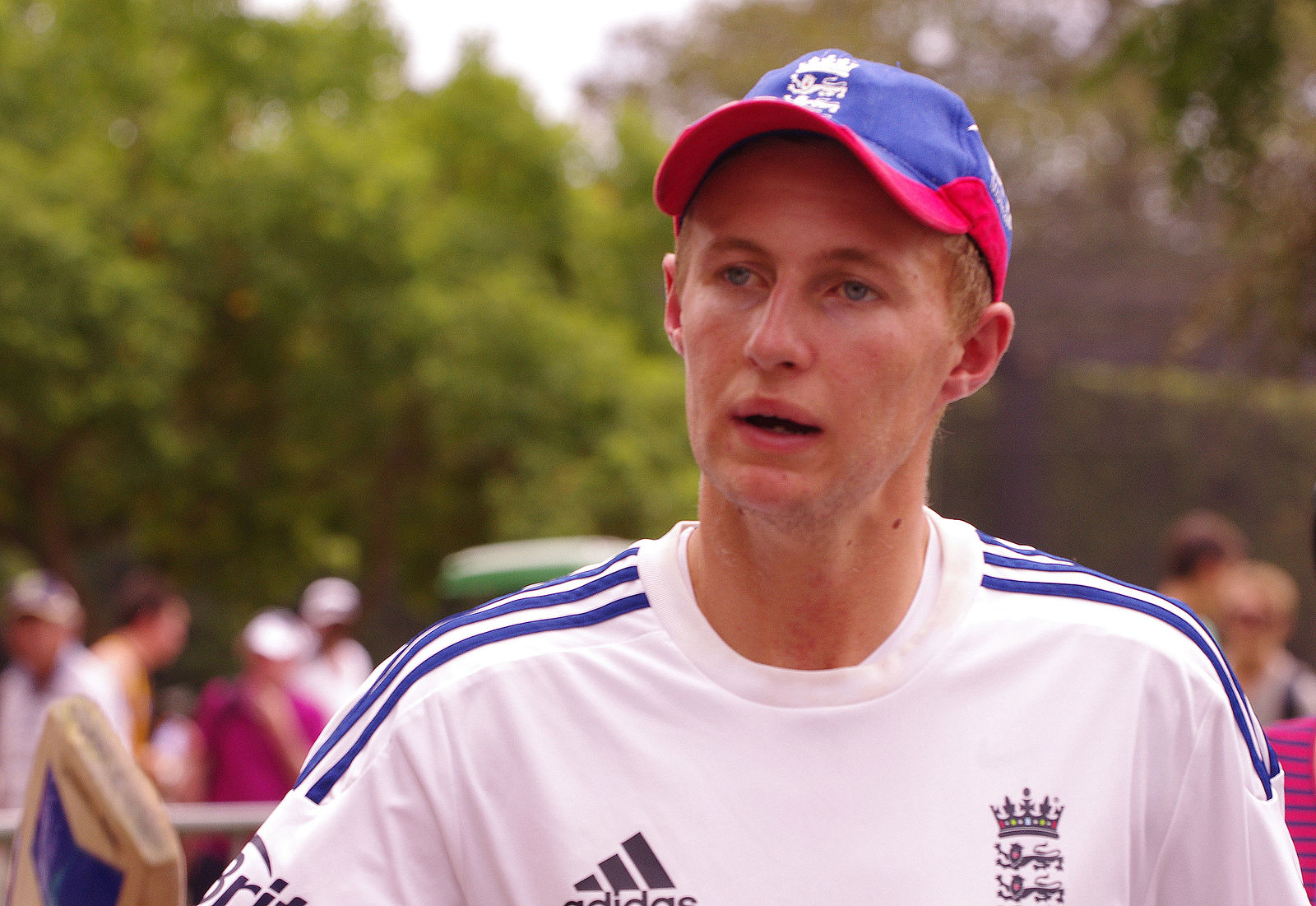
Yorkshire’s Joe Root creates history in 1st Test against New Zealand: Full list of records and more
Former England skipper Joe Root entered his name into record books again yesterday, during the ongoing 1st Test against New Zealand at Hagley Oval in Christchurch.
The 33-year-old became the 11th cricketer to complete 150 appearances in the longest format of the game.
After adding another feather to his illustrious crown, Root capped off a forgetful outing on Day 2 as the milestone man from Yorkshire was dismissed for a duck in the 1st innings.
Facing Kiwi debutant Nathan Smith before Lunch, Root was cramped for room and his inside edge skewed off into the stumps on the third ball of the 14th over.
Before handing Root a four-ball duck, Smith outsmarted Jacob Bethell for 10 off 34 balls on the first ball of the same over.
Creating a dubious record in his 150th Test, Root joined Australia's Steve Waugh and Ricky Ponting on an unwanted list. The Australia legends also failed to open their respective accounts in their 150th Test outing.
Becoming the third player to perish for naught in his 150th Test, Root has also overtaken the likes of Virat Kohli and Steve Smith with his 13th duck in red-ball cricket. No player has recorded more ducks than Root (8) in the World Test Championship (WTC).
Regarded as one of England’s greatest ever cricketers, the Yorkshire batter eclipsed Sri Lanka’s Mahela Jayawardene on the elite list of players with Test appearances. Root is behind Australia great Allan Border, who played 156 times for the Baggy Greens.
With fast-bowling icon James Anderson recently calling time on his legendary career, Root is the most-capped Test player for England among the active players. The talismanic batter of the Three Lions is ahead of Australia's Nathan Lyon, who has played 130 Tests.
Root became only the fourth Englishman to reach 150 Test caps in Christchurch. Born in Sheffield, Root has amassed 12,754 runs at an average of 50.81. With a highest score of 262, the Yorkshire stalwart has smashed 64 half-centuries and 35 centuries for England.
The right-handed batter made his Test debut against India in 2012.
New Zealand have posted 319-5 in 74 overs after winning the toss at Hagley Oval. England trail them (348) by 29 runs at Stumps on the second day.
Leading England's charge in Christchurch, Harry Brook played an unbeaten knock of 132 off 163 balls. Brook and skipper Ben Stokes will resume the England innings on Saturday.
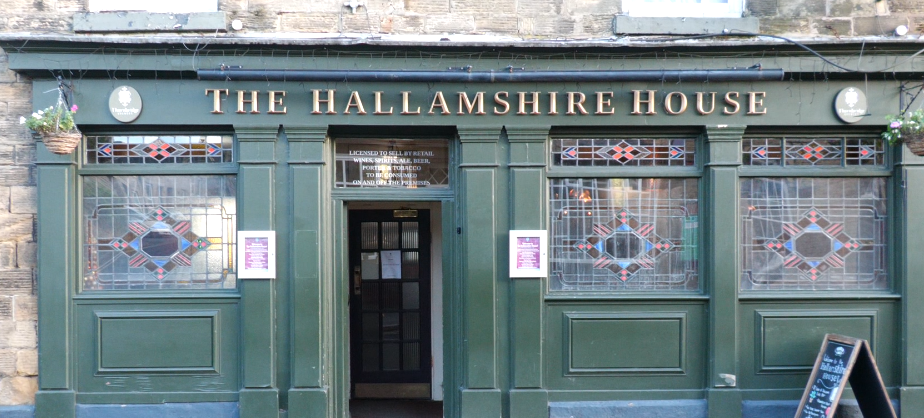
The Hallamshire House crowned Sheffield’s best boozer
The Hallamshire House, a much-loved, Crookes pub earned the "Best Boozer" title after 15,500 accounts voted in the 2024 Battle of the Boozers.
This week's final saw The Hallamshire House go head-to-head with The Fat Cat, a pub in Kelham Island.
Last year’s winner was Alder Bar in Kelham Island, and in 2023 one of Sheffield’s oldest pubs, Shakespeare’s, claimed the crown.
General Manager of The Hallamshire House, Doug Simpson, said: "It’s fantastic, the competition is something we’ve been aware of since it started out four years ago. We are a traditional pub with loads of lovely regulars, who really got stuck into this and got behind the campaign.”
Hosted by "@pintsofsheffield" on Instagram, the competition aims to get people talking about their local pubs and following them online. The hope is that increasing social media engagement with these venues will ultimately lead to more visitors throughout the year.
Mr Simpson said: "@pintsofsheffield is an absolute godsend for Sheffield’s pub scene. Our engagement has gone through the roof.”
Nominations opened in October, with anyone able to tag their favourite venue in Sheffield.
Those with the most nominations were entered into the tournament, and head-to-heads were decided by a live draw. The different pubs then competed against each other every day for a month, with the remaining boozer crowned the winner.
The Hallamshire House is popular with students in the surrounding areas, running weekly pub quizzes and hosting a live music show on the last Saturday of each month. Their team have recently been involved in fundraising efforts for the Weston Park Cancer Charity.
They donated their pub quiz fees, amounting to £350, to the local cause.
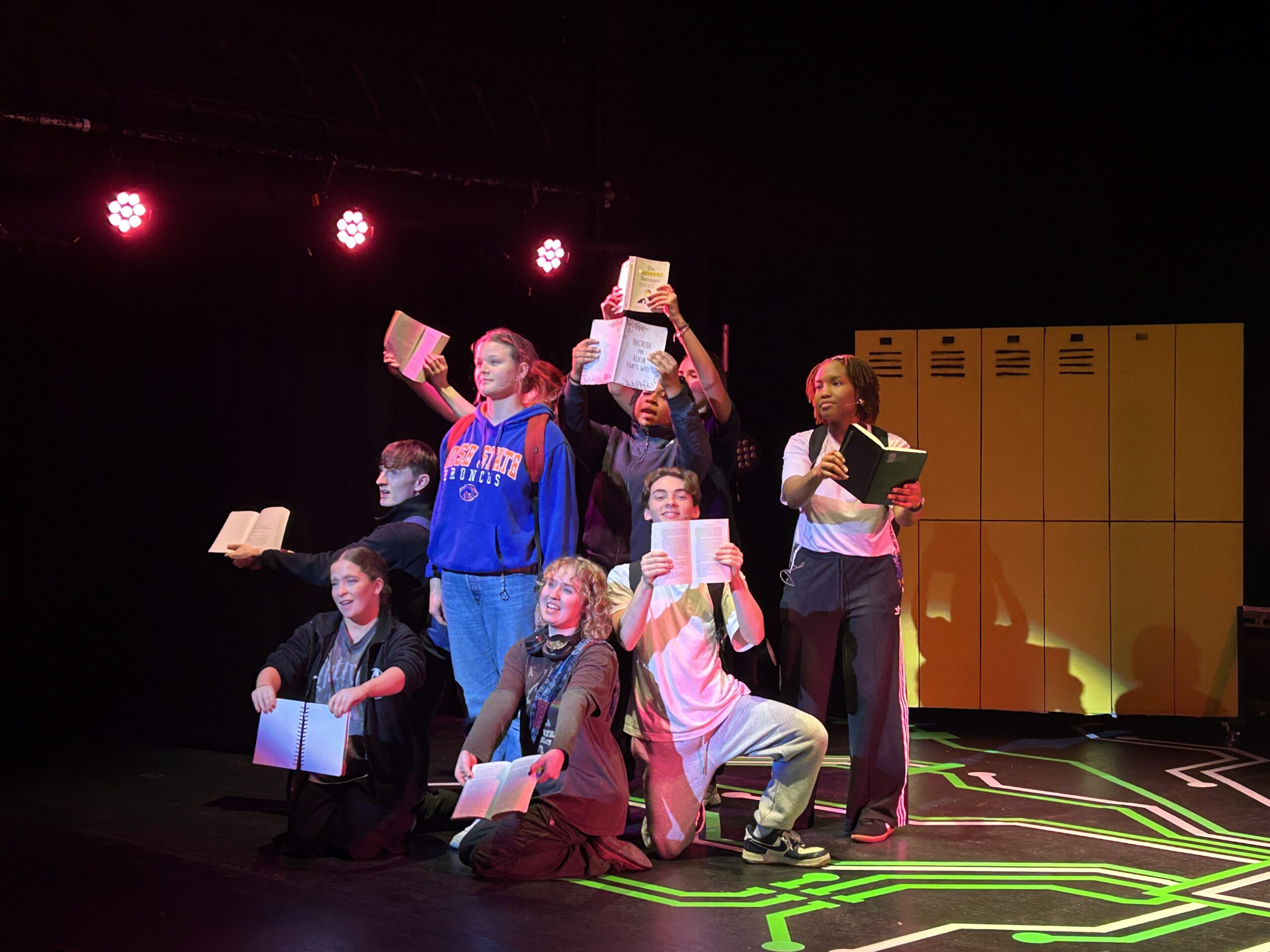
Sheffield University’s Performing Arts Society gives an inclusive spin to the ‘Be More Chill’ Musical
A student-led musical has strayed away from the typical and made an effort to “find the joy in who you are” while tackling themes of neurodivergence and the objectification of women
'Be More Chill' is a novel that was published in 2004, and then later adapted into an off-Broadway musical. Last night was opening night for students performing it at The University of Sheffield.
The story follows a 16-year-old outcast, Jeremy, who takes “SQUIP” , a computer programmed pill which makes you popular, in turn affecting his friendships and personal life.
The musicals deals with themes of insecurity, neurodivergence and the relatable struggle of “trying to fit in.”
Alice Bell, 20, has made her directorial debut with this play, and has made an effort to portray the struggle of new-age teenagers with musical word-play. She has tried to approach the script with a fresh perspective, highlighting the normalisation of neurodivergence and beauty standards in the production.
Alice said “The commentary that the story has about the dangers of internet culture and rise of red-pill incel mentality really resonated with me within the script.”
Jeremy, the lead of the musical, goes through a journey where he is expected to change himself to be seen. The director believes that the pressure still prevails in teenage boys online, and it is important to connect the dots to the issues of inclusivity faced right now.
The presentation of the women in the play has a deliberate mark in their persona as opposed to what the main character thinks about them. This ranges from the sexualisation of women through the character’s lens after he has been “squipped.”
The director and choreographer have tried to portray this contrast through the song “Do you wanna ride” which essentially sexualises women to show the internet’s mentality of how women are perceived.
Alice said: “All these women have more about them, but that is not what is seen and to show that divide is what we have tried to do.”
“Characters like Sandy from Grease or Cady from Mean Girls are essentially pretty underneath the glasses, but our characters don’t fit in the typical mould.”

Esther Scourse, 18, plays the character of Michael, an outcast friend of Jeremy who is eventually left out after his friend gets popular. The character of Michael plays a major role in commenting on societal standards.
As opposed to most coming-of-age productions, the cast in this production is actually of or close to the age of the characters in the novel.
Esther said: “I think sometimes teenagers and children aren’t played with as much respect and knowledge that they do, which is usually not seen when they are played by adults.”
The Performing Arts Society had its opening night on Thursday, 28 November and the shows run till the night of Saturday, 30 November at the Drama Studio in Sheffield.
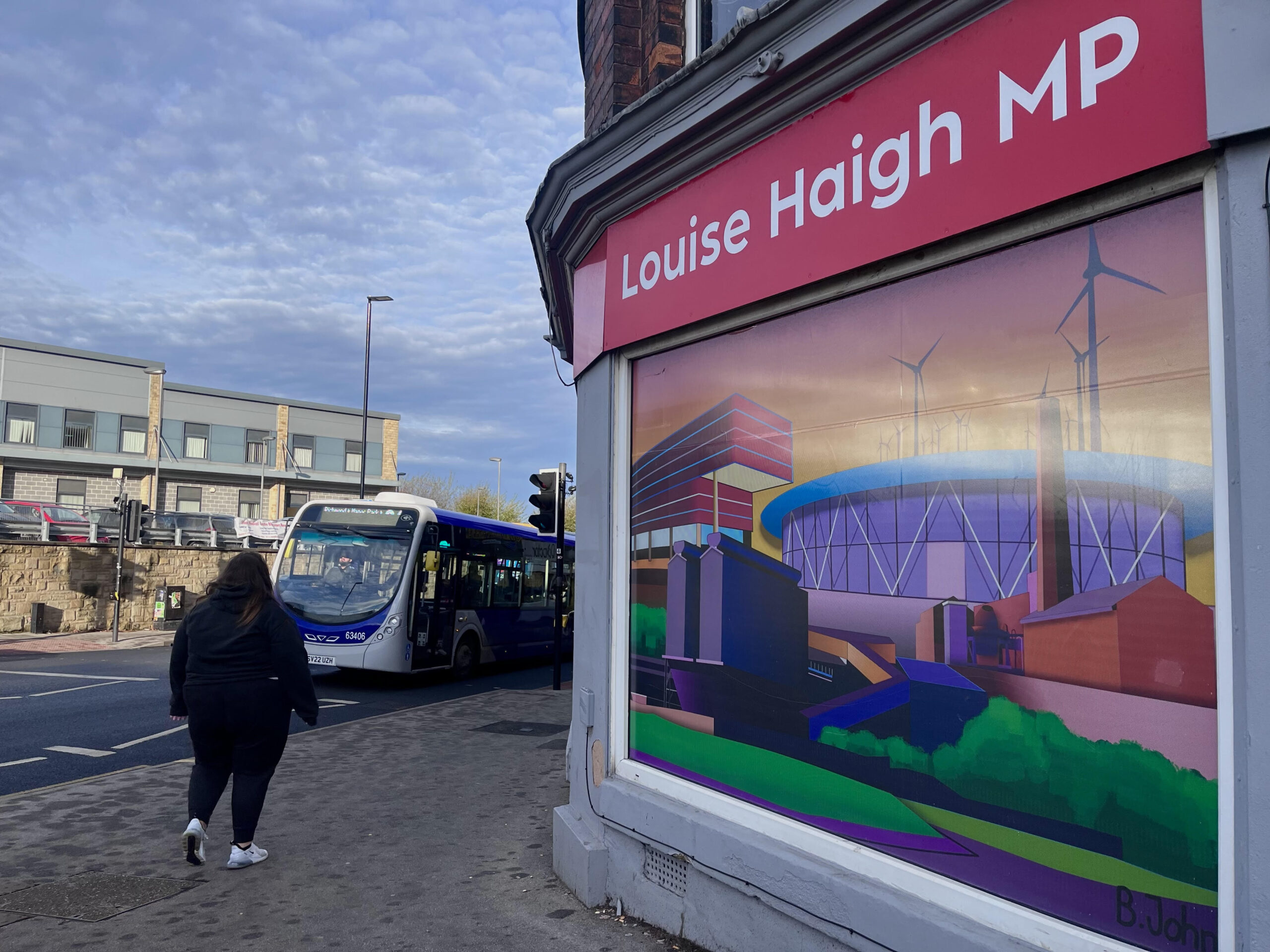
Louise Haigh: Everything we know and what her constituents think
The streets of Sheffield Heeley were divided this morning following the resignation of MP Louise Haigh as Transport Secretary.
Haigh resigned from her position this morning, following a charge of misleading the police after a mugging incident in 2013.
However, a local resident said: “I don’t think she should’ve been voted into Parliament when they already know about her and what she had done”.
Haigh, who was described as having “terrier-like intensity”, was first elected as Labour MP for Sheffield Heeley in 2015 but has served in both shadow cabinet and ministerial roles.
One constituent said: “It is insignificant and I do not think she ought to have resigned over that."
She was the youngest member of the cabinet, and also the first cabinet resignation since the July election.
Other constituents shared that they felt as though she had made positive progress for local transport and its improvement.
In her resignation, she said she will continue to fight for the people of Sheffield Heeley as their MP.
Dr Joe Ward, a Postdoctoral Fellow in Politics at the University of Sheffield, said he feels as though there is a “double standard” within the government.
"When you’re closer to the leadership, it seems you get more leeway."
However, it has been speculated that further information came to light prior to her resignation this morning.
He said: "Her resignation has been clean and quick and she’s clearly been advised to act quickly."
Haigh told Prime Minister Keir Starmer that she will now best support his political project from outside the government.
10 Downing Street has declined to clarify whether or not the Prime Minister knew of Haigh’s previous convictions upon her appointment to the shadow cabinet in 2020.

Pro-Palestinian groups outside of Sheffield Town Hall call the government and council’s actions “cowardly”
Pro-Palestinian groups that have rallied outside of Sheffield's Town Hall on the UN Day of Solidarity have described the actions of Sheffield Council and the government as "cowardly".
Julie Pearn, the chair of the Sheffield Labour Friends of Palestine group who urged Sheffield City Council to fly the Palestinian flag today, has expressed her disappointment with the leaders of the council.
She said: "The city council has really been very reluctant, cowardly and obstructive. We have many friends amongst the councillors, but the leadership of the council has been very disappointing."
Many activists at the rally were disheartened by Keir Starmer and the Labour government's actions.
Alexi Dimond, Gleadless Valley's Green Party Councillor, believes that what has happened in South Yorkshire today sends a message to the government.
He said: "I think this sends a clear message to Keir Starmer that we will stand with the Palestinian people. We have had enough of the British government's not just complicity but actual participation in the genocide."
Members of the activist group Sheffield Jews against Israeli Apartheid gathered in support of Palestine at the rally today.
Leni Solinger, a Jewish member of the group, argued the importance of demonstrating her support.
She said: "We don't want people to think that there is one Jewish voice and one Jewish voice gets a lot of press coverage but our Jewish voice doesn't."

Warning issued for students in Stalker Lees and Ecclesall Road following unsettling incidents
Students living around Sheffield’s Stalker Lees and Ecclesall Road are being urged to remain cautious following reports of alarming incidents near university accommodations.
Residents have described men peering into windows, banging aggressively on doors, and even following individuals into their homes late at night.
One student recounted a terrifying experience where she came home late and heard footsteps behind her. She managed to lock her door just in time, but when she looked out, a man was crouched and staring through her kitchen window.
Footage from a Ring doorbell camera captured a man lurking outside a house and signaling to others, raising concerns about coordinated activity.
Reports of these incidents, mostly occurring around 2am, have been shared widely, yet students claim police investigations remain limited.
A student from Sheffield Hallam University, Lily, said: “I know that people have reported stuff but nothing’s really coming from it and I think it needs to be taken more seriously because it is a big issue”.
Stacy, another resident living around the area expressed frustration “No wonder no one feels safe going out. It’s not fair”.
Students are urged to report suspicious activity immediately and to remain vigilant. Community groups are also encouraging housemates to stick together when traveling home and ensure their properties are secure.
Although the residents are concerned about women’s safety, some residents like Teena, who works at the Sheffield Hallam University said: “I feel very safe to walk around here at night because I have lived in the area for 30 years so it doesn’t stop me from walking around”.
As the nights grow longer, students are reminded to lock windows, close blinds, and prioritize personal safety. Authorities stress the importance of staying aware of your surroundings and using well-lit routes when walking at night.
